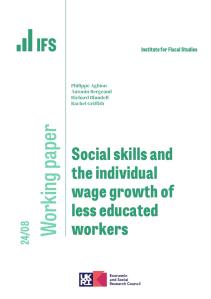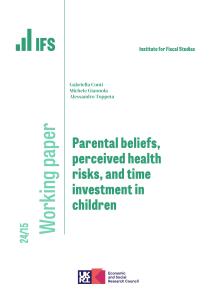We estimate the effect of education on lifetime earnings by distinguishing between individuals who lived in rural or urban areas during childhood and between individuals with access to many or few books at home at age 10. We instrument years of education using compulsory school reforms and find that, whereas individuals in rural areas were most affected by the reforms, those with many books enjoyed substantially higher returns to their additional education. We show that books retain explanatory power even when we select relatively homogeneous groups in terms of the economic position of the household.
Authors

Research Associate University of Padua
Guglielmo is a Research Associate at the IFS and Professor in the Department of Economics at the Faculty of Statistics, Padua University.


Journal article details
- Publisher
- Economic Journal
- Issue
- March 2017
Suggested citation
G, Brunello and G, Weber and C, Weiss. (2017). 'Books Are Forever: Early Life Conditions, Education and Lifetime Income' (2017)
More from IFS
Understand this issue

Sure Start achieved its aims, then we threw it away
15 April 2024

Behind the numbers: reassessing investment in skills and training
12 October 2023

If you can’t see it, you can’t be it: role models influence female junior doctors’ choice of medical specialty
24 April 2024
Policy analysis

The short- and medium-term impacts of Sure Start on educational outcomes
9 April 2024

Sure Start greatly improved disadvantaged children’s GCSE results
9 April 2024

What you need to know about the new childcare entitlements
28 March 2024
Academic research

Social skills and the individual wage growth of less educated workers
27 March 2024

Labour market inequality and the changing life cycle profile of male and female wages
15 April 2024

Parental beliefs, perceived health risks, and time investment in children
15 April 2024